Will Confederate flag backlash strike Mississippi next?
- Published
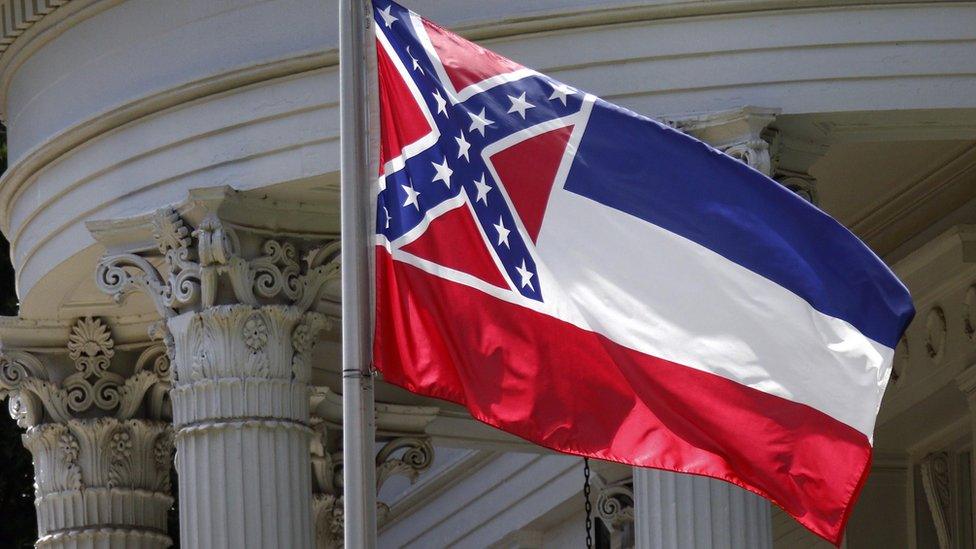
A battle is brewing in Mississippi, as the growing animosity directed against Confederate symbols following the church shooting in Charleston has led to calls to remove the rebel pattern from the state's flag.
It's a battle that Greg Stewart, executive director of the Jefferson Davis Home and Presidential library in Biloxi, has fought before. And it's one he's convinced the defenders of the flag that has flown over Mississippi for more than 100 years will win again.
Sitting inside a massive, million-dollar monument to Southern history - built on the post Civil War home of the Confederate president with federal disaster relief funds provided after 2005's Hurricane Katrina - Stewart explains that Mississippi is most definitely not South Carolina.
If the national media and liberal agitators think his state is going to be quick to follow suit and renounce its Confederate heritage, he says, they're mistaken.
According to Stewart, "the stars all lined up" in South Carolina. A tragic event combined with national Republicans who wanted to defuse the debate over the Confederate flag before the South Carolina presidential primary next February.
"They are desperate to get the flag issue off the table before the presidential hopefuls have to show up and face those questions," he said.
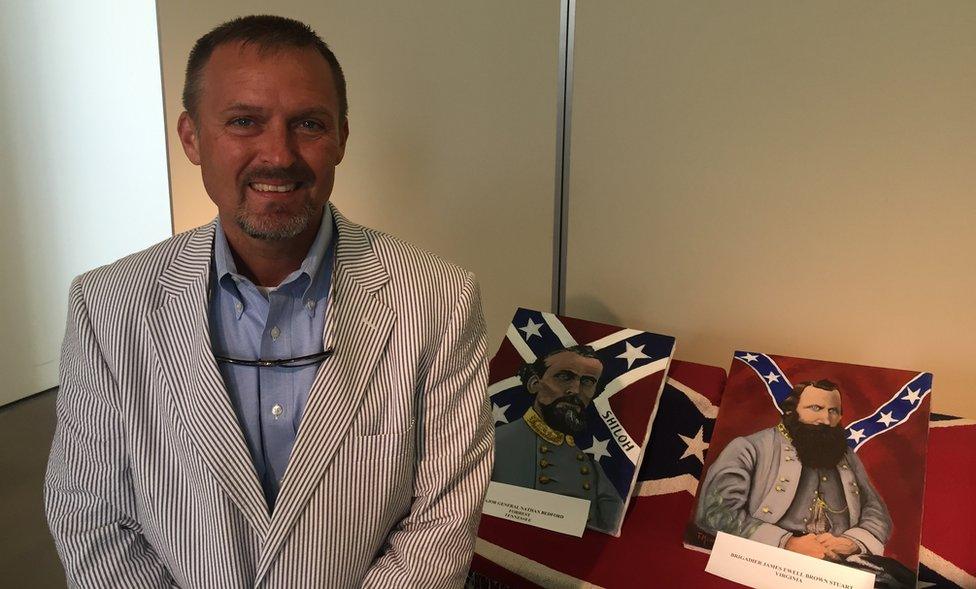
Mississippi is not South Carolina, says Stewart
Stewart already bears the political battle scars from a 2001 fight to prevent what he saw as a pending back-room deal to change the flag. He pushed for Mississippi to hold a public vote on the issue - and when they did, they opted by a nearly two-to-one margin to make no change.
At that point Stewart thought the issue was settled. And it seemed to be - until Charleston.
Given the events of the past week, it now appears as if a tidal wave of public opinion about the Confederacy and the place of Confederate imagery in modern society is sweeping across the South.
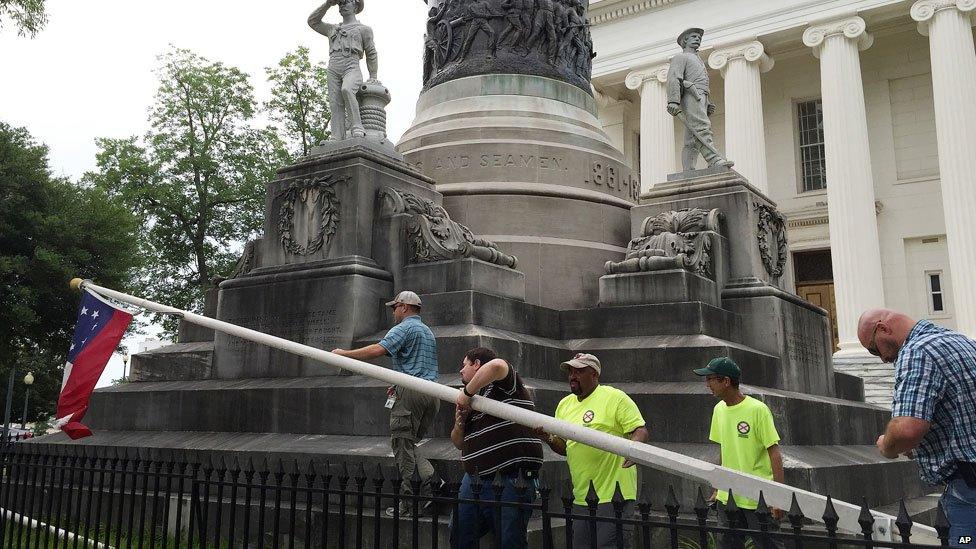
The flags came down in Alabama on the orders of the governor
South Carolina Governor Nikki Haley has publicly called for the Confederate flag to be removed from her statehouse grounds. Legislative action making her recommendation a reality is likely only a matter of time.
Virginia Governor Terry McAuliffe announced his state would stop issuing licence plates with the rebel flag on it. Mega-retailers Walmart, Sears and Amazon.com are halting the sale of flag-themed merchandise. Online auction website eBay will no longer list Confederate flags - and the same goes for the craft site Etsy.
It was only a matter of a few hours, minutes even, after Ms Haley announced her support for removal of the flag that attention turned to Mississippi.
"This is not a horribly offensive relic of history that flies on/near state buildings," tweeted, external Mother Jones editor Clara Jeffrey. "It is the actual flag of the state of Mississippi."
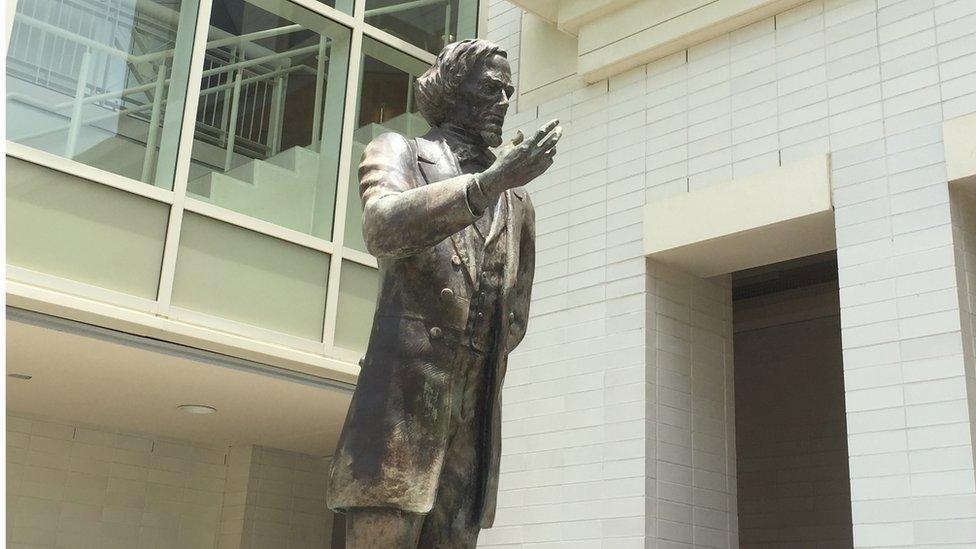
Jefferson Davis was president of the Confederate States of America during the Civil War
Jennifer Gunter, a Mississippi native who now lives in South Carolina, started a moveon.org petition calling for state officials "to change the flag of Mississippi to reflect the present, not the past". It received more than 18,000 signatures.
Philip Gunn, the Republican speaker of the Mississippi House of Representatives, also came out firmly in favour of change.
"We must always remember our past, but that does not mean we must let it define us," he said in a statement. "As a Christian, I believe our state's flag has become a point of offence that needs to be removed."
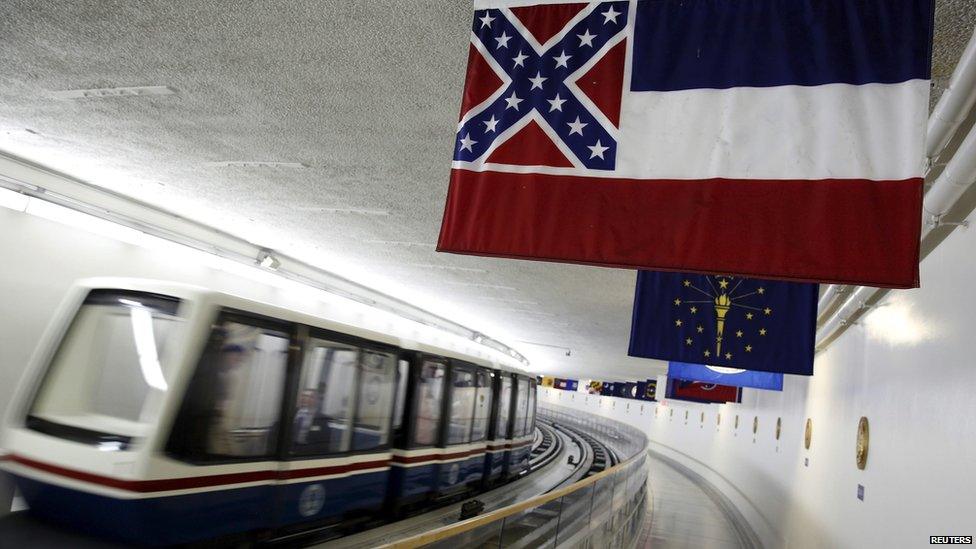
It's not just seen in Mississippi, here's the state flag in Washington DC
According to Stewart, however, Mr Gunn will soon be isolated among state leaders.
"Gunn has made a huge mistake," he said. "He was not here in 2000. The woods are on fire."
He says he sees the same look in the eyes of country-dwelling Mississippians angry about changes to the flag that he saw back then.
"If you do something to them that really bothers them, they will climb off that tractor and come into the town and vote," he adds.
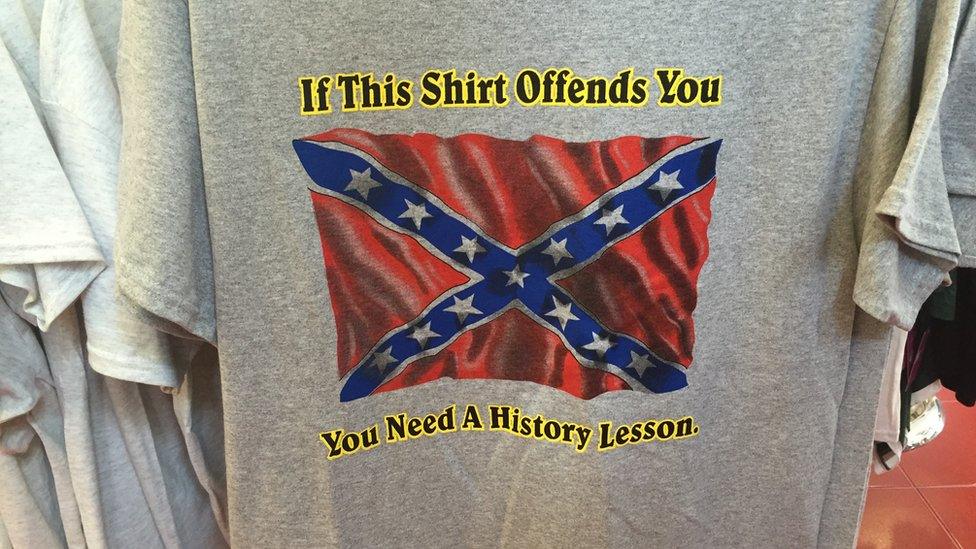
Early evidence from other Republican leaders seems to bear this out.
The governor, Republican Phil Bryant, pointed to the flag referendum in his only public comments so far.
"A vast majority of Mississippians voted to keep the state's flag, and I don't believe the Mississippi Legislature will act to supersede the will of the people on this issue," he told a local television station.
Another state legislator, Melanie Soujourner, wrote on her Facebook page, external that calls to take down the flag in South Carolina are what's wrong with US society.
"The flag was no more the 'source' of horrible acts against mankind than a gun is the 'source' of someone's death," she wrote. "We all have a responsibility to make certain that it is the 'source' we address and not place blame on something that alone could do no harm."
Then again, many South Carolina politicians were saying the same thing in the days just after the Charleston shooting. Could the ground shift in Mississippi equally quickly?
Even within the walls of the Jefferson Davis museum, visitors gave a mixed reaction to the flag issue.
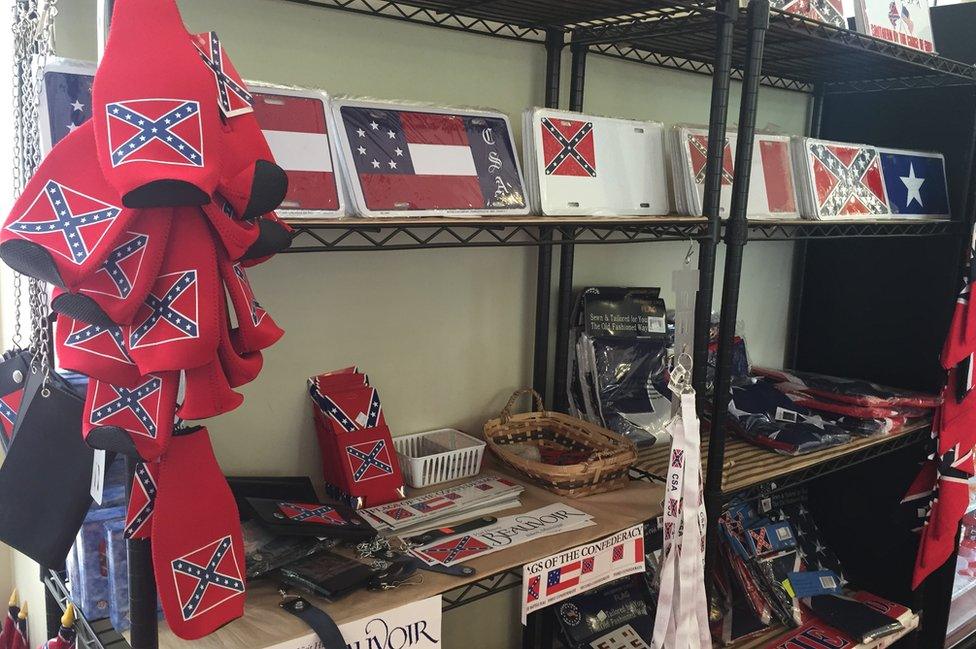
The museum gift shop is full of Confederate imagery
"You have to be proud of the state where you're from, and that's part of their history," said Elizabeth Hahs, visiting from Missouri. "I think it's a good representation of what the state's gone through and been through."
Kim Sine of Wymer, Texas disagreed.
"I think they need to take it down," she said. "Put it in a museum. Quit flying it around and causing trouble."
Just a few miles away, outside a local Walmart - now devoid of Confederate merchandise - feelings were similarly divided.
"It's like the shooting in Ferguson had nothing to do with racism, but they made it a racist thing," said Rick, a Biloxi resident who declined to give his last name. "The shooting in South Carolina was purely racist, but it had nothing to do with the Confederate flag."
"It's time to take it down," said Effie Hudson Barrett, a local Mississippian who asserts she is a "black American", not an "African-American". "The flag has always been against us. The 50 stars on the US flag is the only thing that should represent us."
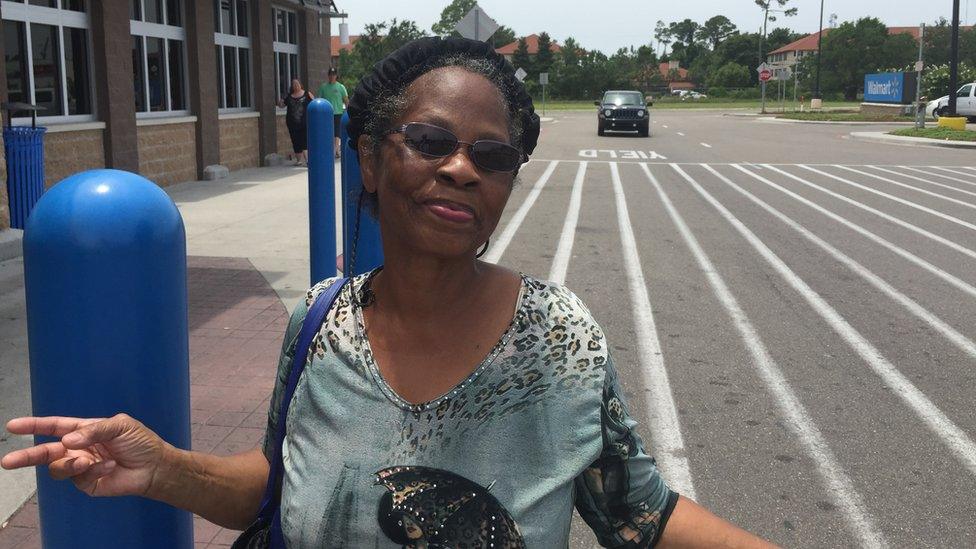
Stars and Stripes or nothing, says Effie Hudson Barrett
At a tattoo parlour down the street, artist Travis Wade says he's probably drawn hundreds of Confederate flag tattoos - and he wouldn't be surprised if he sees an uptick in business from those willing to push back against the criticisms. "We're in the South, after all."
Personally, he says, he doesn't know what the big deal is.
"Who cares?" he asks. "It's like somebody shoots someone with a gun and they want to ban guns. Somebody that did something bad likes a flag, but that doesn't mean that everybody who likes that flag is bad."
Fellow employee Tom Donovan adds that if any patrons want to get their old flag tattoos covered up, they can do that too.
"Something dark that will cover the colours - like a black panther or a grim reaper," he says.

Travis Wade (left) and Tom Donovan have drawn “hundreds" of Confederate flag tattoos
It doesn't seem likely that the Mississippians who cherish their Confederate past are going to be quick to renounce it, however. As Stewart explains, to do so means turning their backs on their ancestors.
"Implicit in the argument that the flag represents evil is for me to have to say, yeah, you're right, my people were evil," he says. "And that's just not true."
A short walk away from the Jefferson Davis museum is a graveyard filled with tombstones of Confederate war veterans. Many lived out their final days on Davis's estate, which was converted to an old soldier's home following his death.
Fresh Confederate flags are scattered among the headstones, which bear the names and military ranks of those interred beneath the ground.
It's been more than 150 years since Robert E Lee, the general who led these men into battle, laid down his sword at a courthouse in Appomattox, Virginia.
But in Mississippi, the echoes of the war have yet to fade.